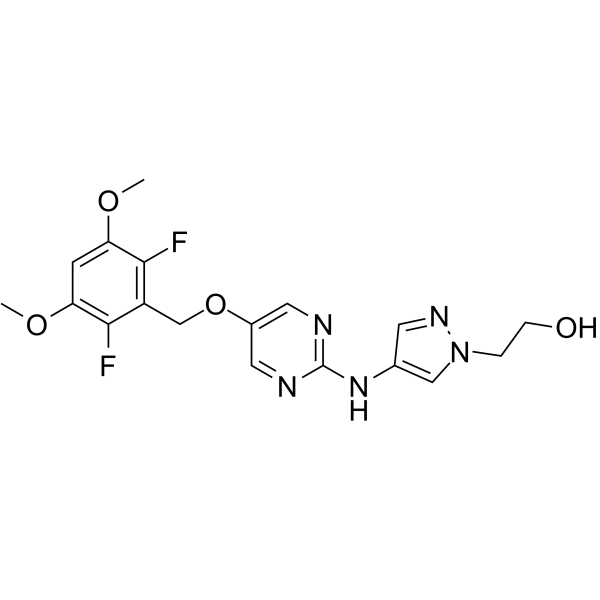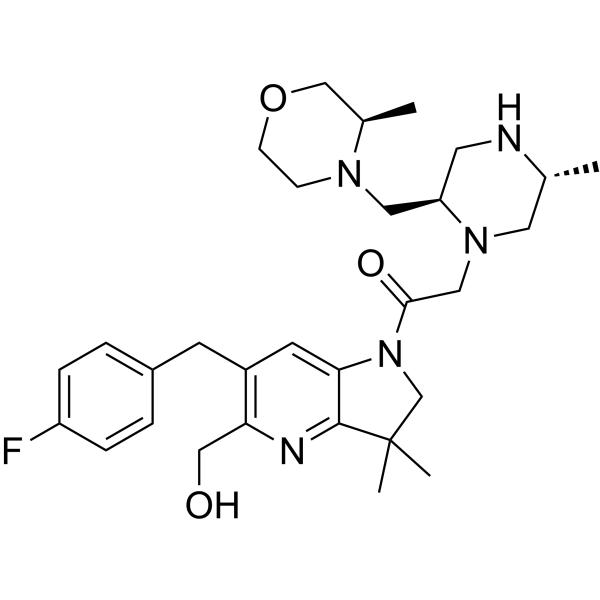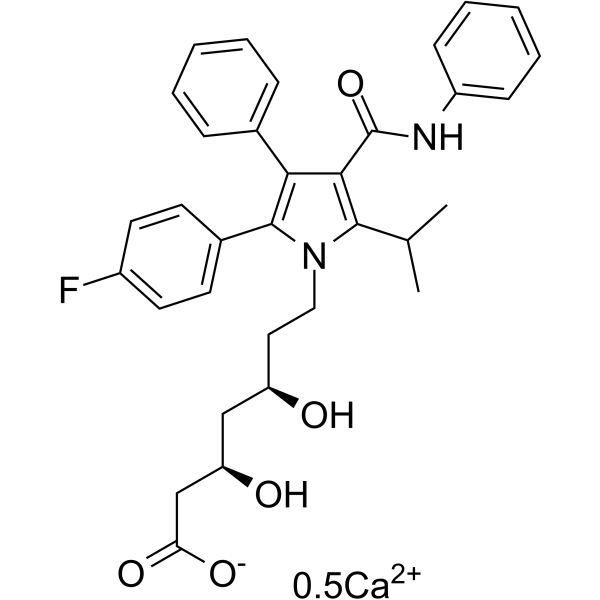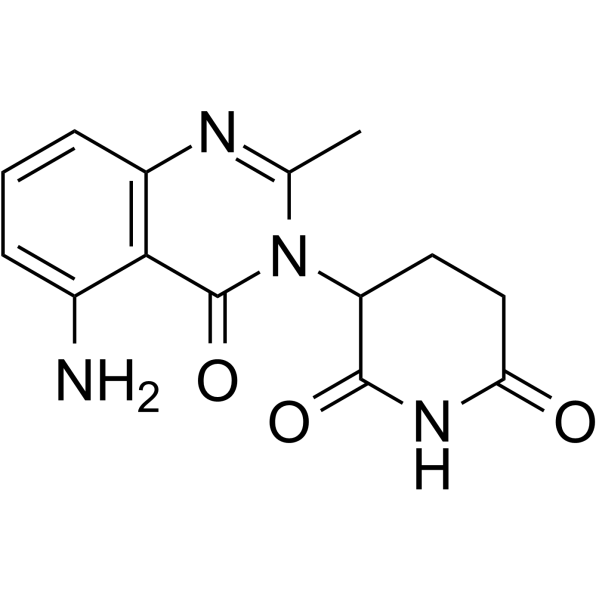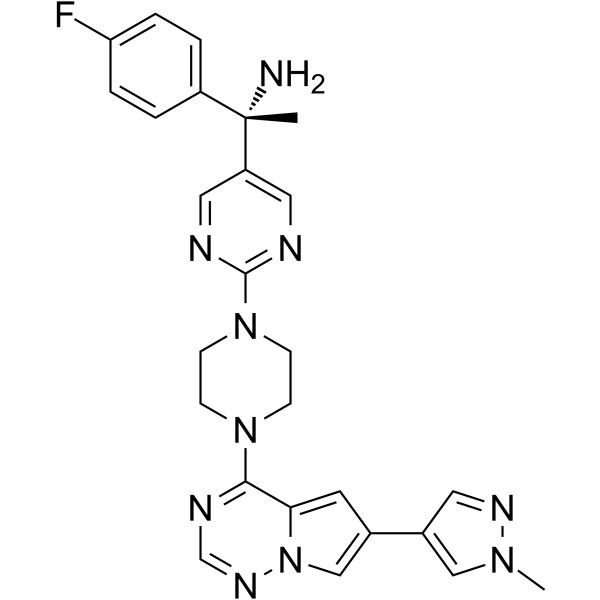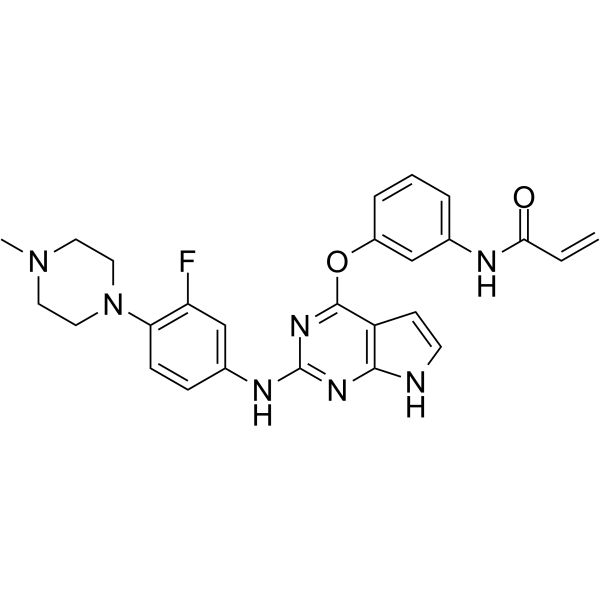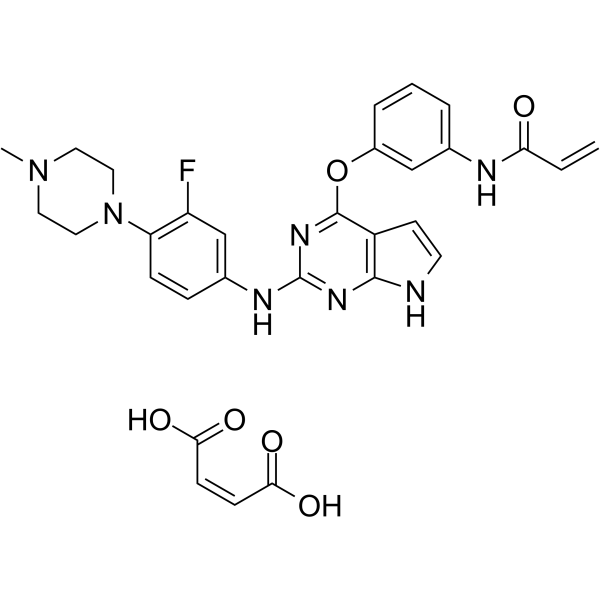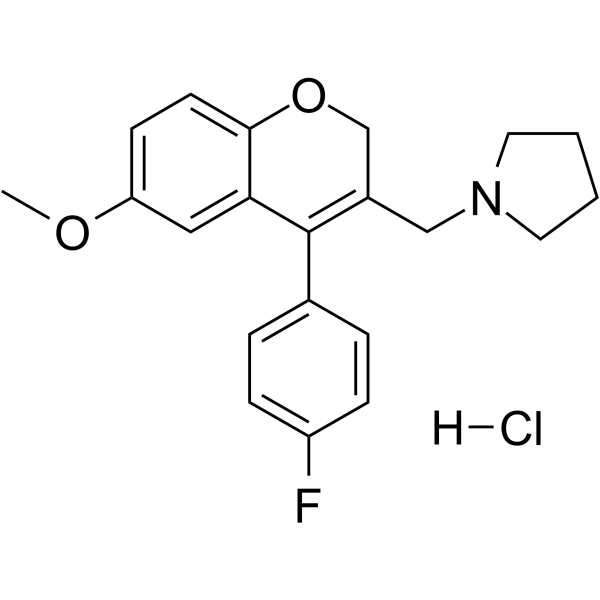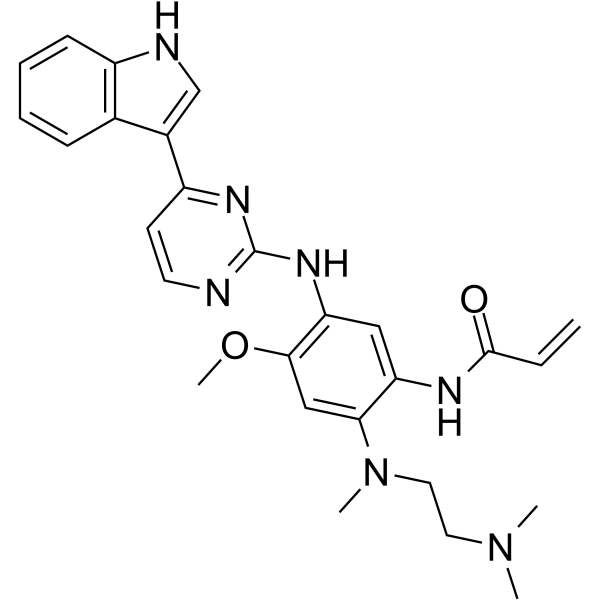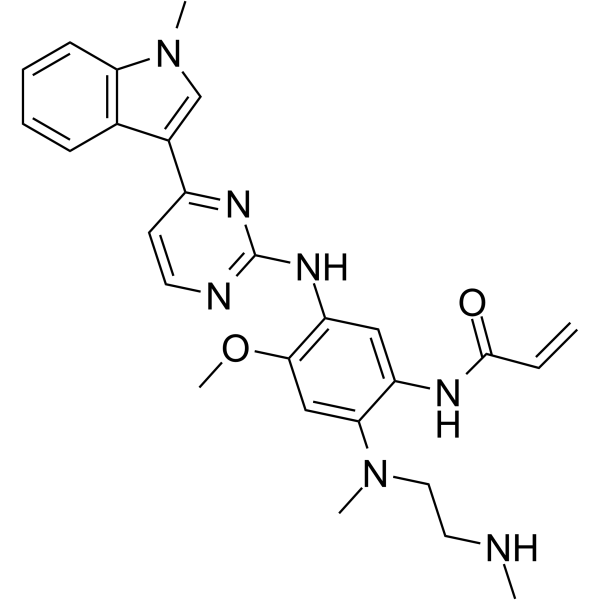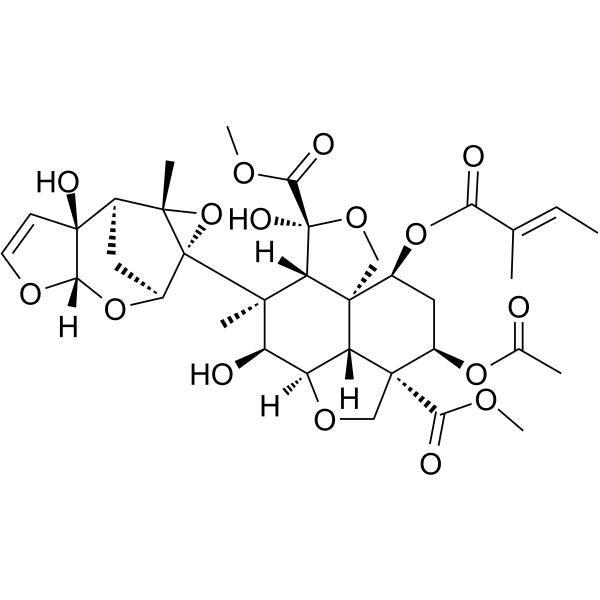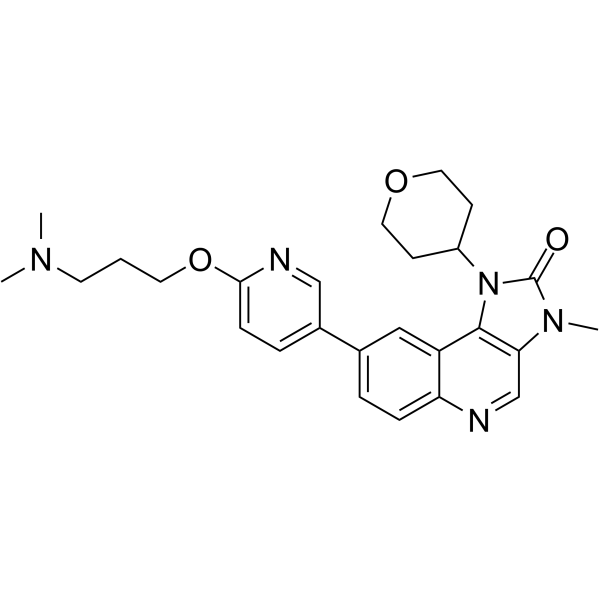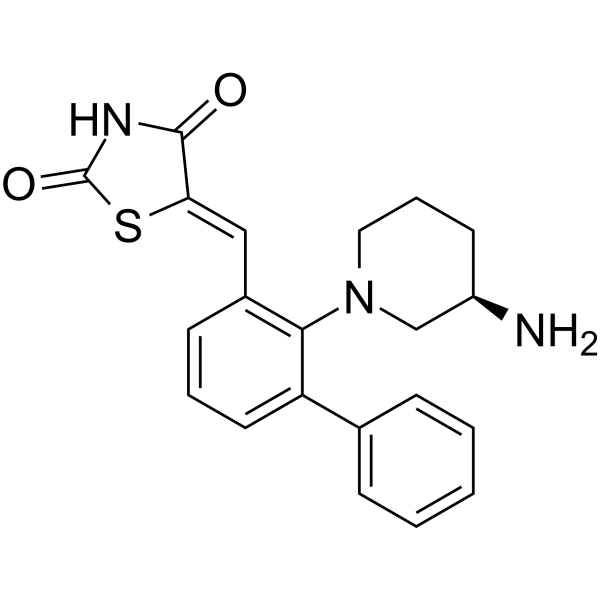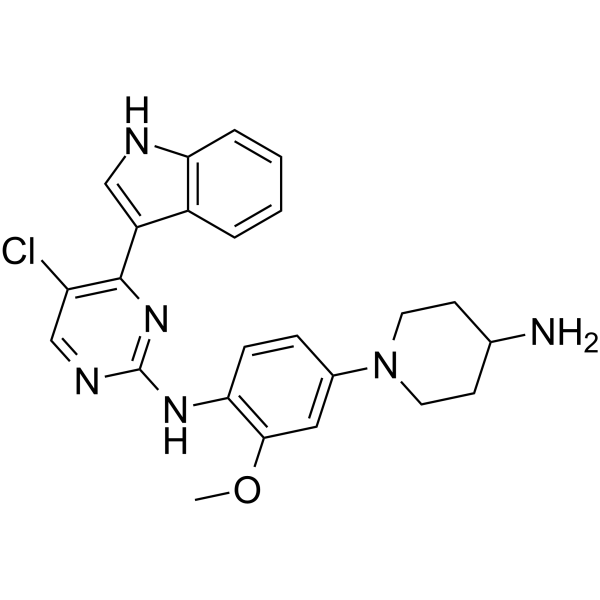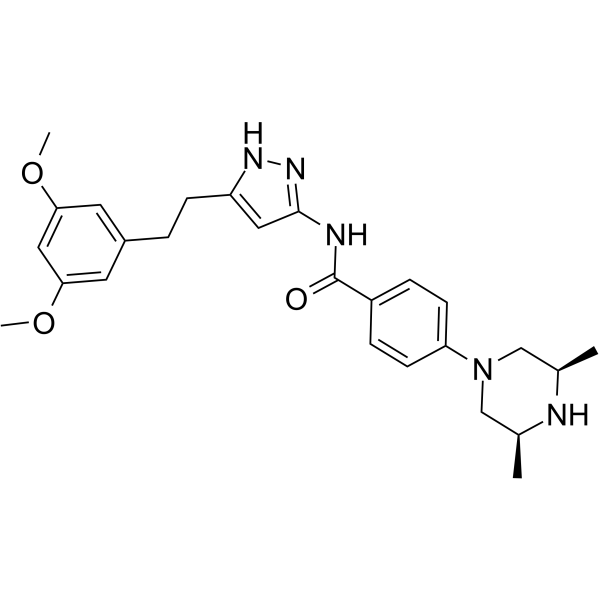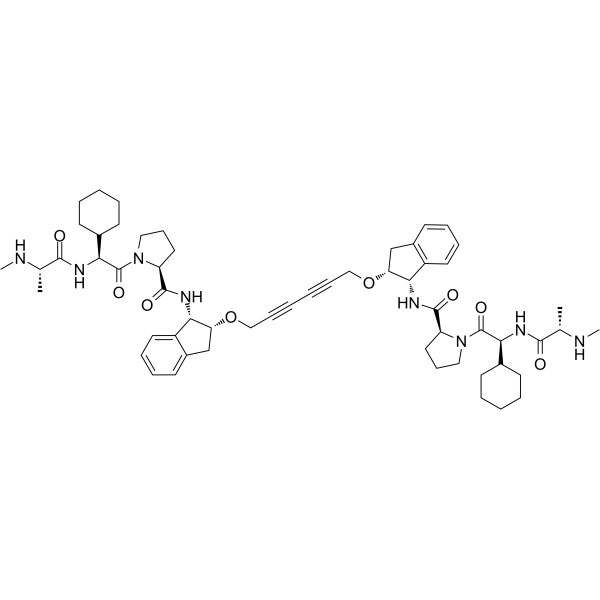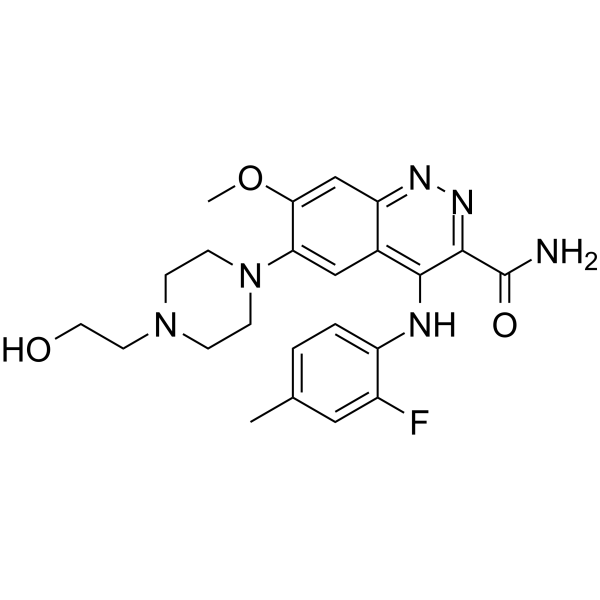|
BP10561
|
ASP5878
|
|
|
|
|
ASP5878 potently inhibited the tyrosine kinase activities of recombinant FGFR1, 2, 3, and 4 with IC50 values of 0.47, 0.60, 0.74, and 3.5 nmol/L.
|
|
BP10790
|
ASTX660
|
|
|
|
|
ASTX660 is an orally bioavailable dual antagonist of cIAP and XIAP.
|
|
BP10446
|
Atezolizumab
|
|
|
|
|
Atezolizumab anti-PD-L1) is a fully humanized IgG1 monoclonal antibody that blocks the interaction of PD-L1 with both PD-1 and B7.1 but not the interaction of PD-L2 with PD-1.
|
|
BP10397
|
Atorvastatin hemicalcium salt
|
|
|
|
|
Atorvastatin hemicalcium salt, an effective HMG-CoA reductase inhibitor (IC50 = 8 nM), is utilized as a cholesterol-lowering medication.
|
|
BP10024
|
Avadomide
|
|
|
|
|
CC-122 is an orally available pleiotropic pathway modulator with potential antineoplastic activity.
|
|
BP10744
|
Avapritinib
|
|
|
|
|
Avapritinib is a dual inhibitor of the mutant KIT receptor (KIT D816V, IC50: 0.27 nM) and PDGFRα (PDGFRα D842V, IC50: 0.24 nM).
|
|
BP10629
|
Avelumab
|
|
|
|
|
Avelumab is a fully human IgG1 anti-PD-L1 monoclonal antibody with potential antibody-dependent cell-mediated cytotoxicity.
|
|
BP10649
|
Avitinib
|
|
|
|
|
Avitinib, also known as AC0010 or AC0010MA, is an orally available, irreversible, epidermal growth factor receptor (EGFR) mutant-selective inhibitor, with potential antineoplastic activity. Upon oral administration, avitinib covalently binds to and inhibits the activity of mutant forms of EGFR, including the drug-resistant T790M EGFR mutant, which prevents signaling mediated by mutant forms of EGFR. This may both induce cell death and inhibit tumor growth in EGFR-mutated tumor cells. EGFR, a receptor tyrosine kinase that is mutated in a variety of Ys, plays a key role in tumor cell proliferation and tumor vascularization. As this agent is selective towards mutant forms of EGFR, its toxicity profile may be reduced when compared to non-selective EGFR inhibitors, which also inhibit wild-type EGFR.
|
|
BP10650
|
Avitinib maleate
|
|
|
|
|
Avitinib maleate is a pyrrolopyrimidine-based irreversible epidermal growth factor receptor (EGFR) inhibitor.
|
|
BP10745
|
AX-024 hydrochloride
|
|
|
|
|
AX-024 hydrochloride is an cytokine release inhibitor which can strongly inhibit the production of interleukin-6 (IL-6), tumor necrosis factor-α (TNFα), interferon-γ (IFN-γ), IL-10 and IL-17A.
|
|
BP10498
|
AZ-5104
|
|
|
|
|
AZ5104 is a potent EGFR inhibitor.
|
|
BP10499
|
AZ7550
|
|
|
|
|
AZ7550, an active metabolite of AZD9291, inhibits the activity of IGF1R (IC50: 1.6 μM).
|
|
BP10140
|
Azadirachtin
|
|
|
|
|
Azadirachtin has antifungal activity, used as an insecticide.
|
|
BP10821
|
AZD0156
|
|
|
|
|
AZD0156 , an effective and specific inhibitors of ATM kinase, is potential antineoplastic activities and chemo-/radio-sensitizing.
|
|
BP10227
|
AZD1208
|
|
|
|
|
AZD1208 is a novel, orally bioavailable, highly selective PIM kinase inhibitor with single nanomolar potency against all three PIM kinases.
|
|
BP10411
|
AZD-3463
|
|
|
|
|
AZD3463, an orally bioavailable ALK inhibitor (Ki: 0.75 nM), can inhibit IGF1R with equivalent potency.
|
|
BP10693
|
AZD3759 hydrochloride
|
|
|
|
|
AZD3759 (hydrochloride) is an effective, orally active and central nervous system-penetrant EGFR inhibitor. At Km ATP concentrations, the IC50s are 0.2/0.3/0.2 nM for EGFR (L858R)/EGFR (wt)/EGFR (exon 19Del).
|
|
BP10059
|
AZD4547
|
|
|
|
|
AZD4547, a new-type specific FGFR inhibitor, targets for FGFR1/2/3 (IC50: 0.2/2.5/1.8 nM in cell-free assays).
|
|
BP10311
|
AZD5582
|
|
|
|
|
AZD5582 is an inhibitor of IAPs, which binds to the BIR3 domains cIAP1, cIAP2, and XIAP with IC50s of 15, 21, and 15 nM, respectively. It induces apoptosis.
|
|
BP10073
|
AZD7507
|
|
|
|
|
AZD7507 is a CSF-1R inhibitor with an IC50 of 32 nM. AZD7507 has antitumor activity.
|
